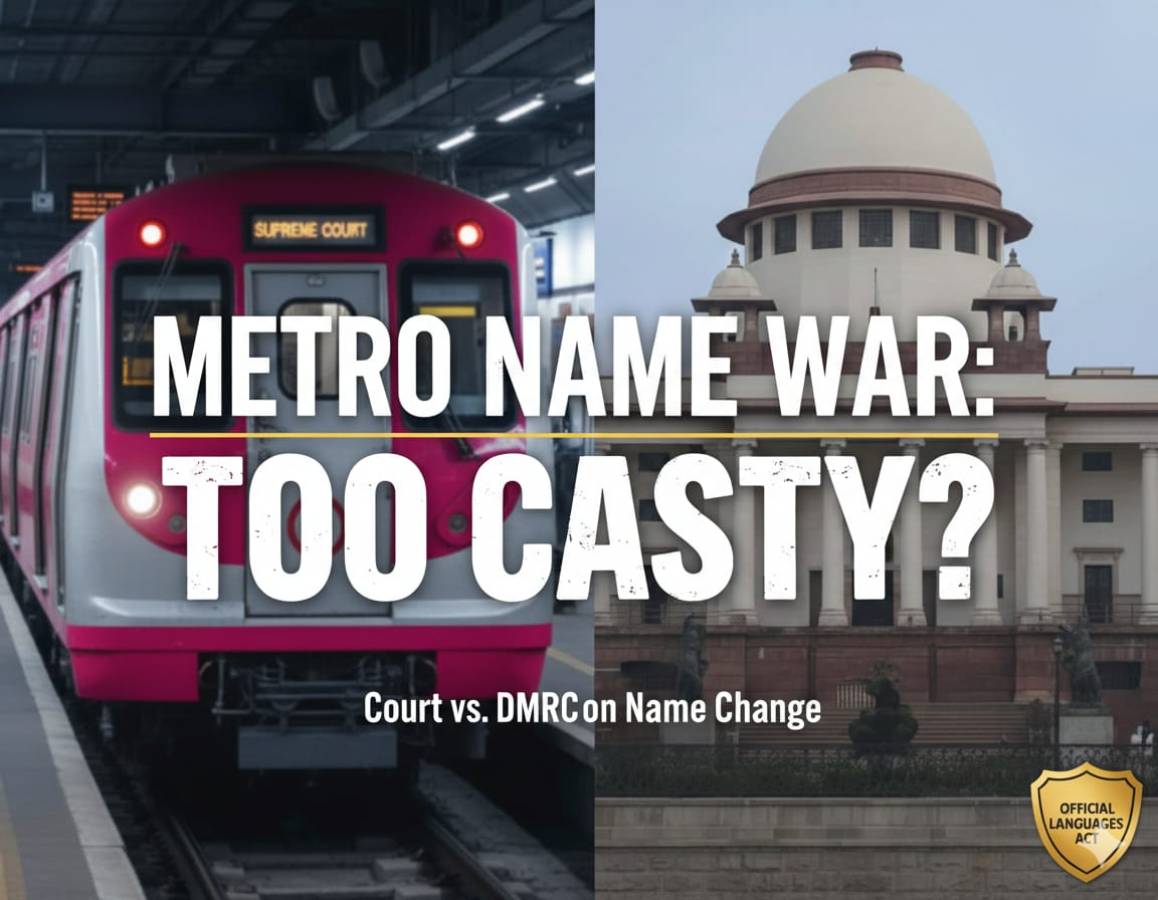
In a move set to revolutionize urban logistics and public transport efficiency, the Delhi Metro Rail Corporation (DMRC) is gearing up to introduce freight services on its trains. This pioneering initiative aims to facilitate the movement of goods across Delhi-NCR, easing road congestion and reducing carbon emissions.
Under this ambitious project, DMRC will employ a hybrid model, ensuring both passengers and freight share the same trains—albeit at different times. The metro infrastructure, primarily designed for human commute, will now double as a freight corridor during non-peak hours, optimizing its utility and enhancing economic sustainability.
Why Metro for Freight? A Sustainable Vision
With Delhi’s roads perpetually choked by traffic, the need for an alternative freight movement solution has never been greater. Trucks and delivery vehicles not only contribute to traffic congestion but also significantly worsen air pollution in the capital. By shifting freight transportation to metro trains, DMRC seeks to create a sustainable, efficient, and eco-friendly logistics network.
This move aligns with global practices where metro systems serve dual purposes. Madrid Metro, for instance, successfully integrated freight transport into its operations back in 2021. DMRC now aims to replicate and tailor this model to fit Delhi’s unique urban landscape.
How Will It Work? The Hybrid Model
The core of this initiative lies in an intelligent scheduling system. While passenger services will continue as usual during peak hours, metro trains will transition into freight carriers during off-peak slots. This ensures seamless co-existence without disrupting daily commuters.
Packages and cargo will be transported via dedicated compartments or modified coaches, ensuring safety and efficiency. This system will be particularly beneficial for e-commerce deliveries, small businesses, and perishable goods transport, significantly reducing last-mile delivery delays.
Key Benefits of Freight Metro Services
1. Decongesting Roads: Fewer delivery vehicles mean lesser traffic and smoother road movement.
2. Lower Carbon Footprint: Metro trains run on electricity, reducing dependence on fossil fuels.
3. Cost Efficiency: Businesses can expect reduced logistics costs with a faster, more reliable delivery system.
4. 24/7 Supply Chain Support: Retailers and businesses will gain from a continuous supply mechanism.
5. Enhanced Metro Revenue: DMRC’s revenue diversification will contribute to maintaining and upgrading metro infrastructure.
The Pilot Phase & Future Prospects
To ensure feasibility, DMRC has launched a pilot project in collaboration with key stakeholders. If successful, this initiative could expand to cover inter-city freight corridors, linking Delhi with its satellite towns—Gurgaon, Noida, Faridabad, and Ghaziabad—via metro-based logistics.
Industry experts believe this model could pave the way for similar innovations in other Indian metros, potentially reshaping urban logistics nationwide. Moreover, the initiative is expected to complement existing railway freight services, making cargo movement more dynamic and diversified.
Challenges & Considerations
While the benefits are substantial, DMRC faces challenges in execution. Safety protocols, loading infrastructure, pricing models, and coordination with businesses must be finely tuned for optimal results. Additionally, public perception and regulatory approvals will play a crucial role in the project’s long-term success.
Nonetheless, with Delhi Metro’s strong track record of innovation and efficiency, stakeholders are optimistic that this freight initiative will mark a significant milestone in India’s urban transport landscape.
A Step Towards Smart Urban Mobility
As cities evolve, multi-functional transportation networks are the need of the hour. Delhi Metro’s freight services could redefine urban logistics, offering a faster, cleaner, and more cost-effective solution for goods movement. If executed well, this initiative could serve as a model for smart urban mobility across India—blending sustainability with efficiency.
With metro stations becoming potential logistics hubs, the capital might soon witness a paradigm shift in freight management, proving once again that innovation is key to tackling modern urban challenges.





















